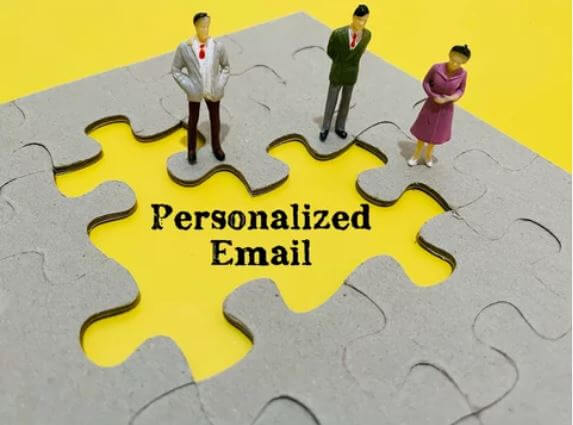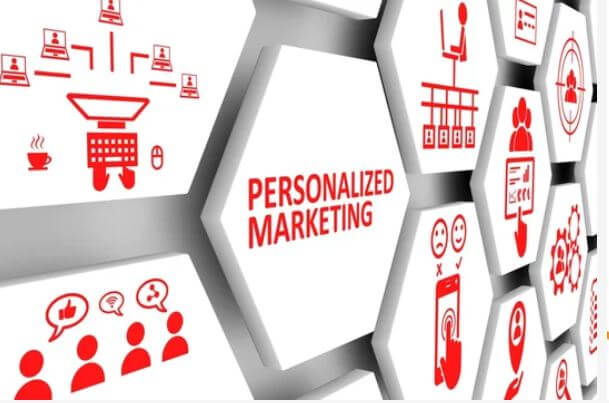Personalized Marketing
Introduction to Personalized Marketing
Personalized marketing is a customer-centric approach that tailors messages and offerings to individual customers’ unique needs and interests. It effectively allows companies to stand out in a crowded market and build strong relationships with their customers.
Definition of Personalized Marketing
Personalized marketing is a marketing strategy that leverages customer data and advanced technology to deliver targeted messages and offers to individual customers. Personalized marketing aims to make customers feel seen, heard, and valued by providing tailored experiences that meet their unique needs and interests.
Importance of Personalized Marketing in Today’s Market
Personalized marketing is becoming increasingly important in today’s market due to the saturation of products and services and the rise of empowered customers. Customers today expect personalized experiences and are more likely to engage with brands that offer them. Personalized marketing improves the customer experience and drives customer loyalty and advocacy, leading to increased brand equity and revenue.
Moreover, personalized marketing has proven more effective than generic marketing strategies. Customized marketing messages are more likely to be read, acted upon, and shared, leading to higher conversion rates and improved customer retention. Personalized marketing also provides a competitive advantage, enabling companies to stand out in a crowded market and differentiate themselves from their competitors.
In conclusion, personalized marketing is an essential aspect of modern marketing that can help companies build strong relationships with their customers and drive business results. Companies can create unique and memorable experiences that increase customer satisfaction and loyalty by understanding and delivering what customers want and need.
Understanding Your Target Audience
A key component of personalized marketing is understanding your target audience. This involves analyzing customer data to gain insights into customer needs, preferences, and behaviors. By doing so, companies can tailor their marketing efforts to meet their customers’ specific needs and interests, leading to more effective and successful campaigns.
Segmentation of Customer Data
Segmentation divides a large customer base into smaller groups based on common characteristics, such as demographics, psychographics, or behaviors. This helps companies better understand their customers and create tailored marketing strategies that resonate with specific segments of the customer base.
Identifying Customer Needs and Wants
Identifying customer needs and wants is critical for delivering personalized marketing messages. This can be achieved by analyzing customer data, conducting surveys and focus groups, or using customer feedback to understand what drives customer behavior.
Demographic, Psychographic, and Behavioral Analysis
Demographic, psychographic, and behavioral analysis can provide valuable insights into customer segments, allowing companies to tailor their marketing efforts accordingly. The demographic analysis looks at factors such as age, gender, income, and education. The psychographic analysis looks at lifestyle, values, and personality traits. The behavioral analysis looks at purchase history, product usage, and response to marketing campaigns.
By understanding your target audience’s demographic, psychographic, and behavioral characteristics, companies can create marketing campaigns that are more likely to resonate with their customers. This leads to increased customer engagement and loyalty, driving business results.
In conclusion, understanding your target audience is a crucial aspect of personalized marketing. By analyzing customer data and identifying customer needs and preferences, companies can create marketing campaigns that deliver more value to customers, leading to improved business outcomes.
Techniques of Personalized Marketing
Personalized marketing techniques leverage customer data and advanced technology to deliver tailored messages and offerings to individual customers. There are several techniques that companies can use to execute customized marketing, each with its own set of benefits and challenges.
Personalized Email Marketing
Personalized email marketing involves sending targeted messages to customers based on their interests and behaviors. This can be achieved by using customer data, such as purchase history, to personalize the email’s subject line, content, and offers. Personalized email marketing effectively builds customer relationships, increases customer engagement, and drives conversions.

Personalized Advertising
Personalized advertising involves delivering targeted ads to customers based on their interests and behaviors. This can be achieved by using customer data, such as search history and social media activity, to personalize the ad content and targeting. Personalized advertising is a cost-effective way to reach a large audience, increase brand awareness, and drive conversions.
Personalized Content Marketing
Personalized content marketing involves delivering targeted content to customers based on their interests and behaviors. This can be achieved by using customer data, such as blog comments and social media activity, to personalize the content and messaging. Personalized content marketing effectively builds customer relationships, increases customer engagement, and drives conversions.
Personalized Social Media Marketing
Personalized social media marketing involves delivering targeted messages and content to individual customers on social media platforms. This can be achieved by using customer data, such as social media activity and purchase history, to personalize the content and messaging. Personalized social media marketing effectively reaches a large audience, increases brand awareness, and drives conversions.
In conclusion, there are several techniques that companies can use to execute personalized marketing, each with its own set of benefits and challenges. By leveraging customer data and advanced technology, companies can create tailored marketing experiences that deliver customer value and drive business results.
Data-Driven Personalization
Data-driven personalization uses customer data to deliver tailored marketing messages and experiences to individual customers. This involves collecting, storing, and analyzing customer data to gain insights into customer needs, preferences, and behaviors, which are then used to inform personalization efforts.

Customer Data Collection
Customer data collection gathers customer information, including demographic, psychographic, and behavioral data. This information can be collected through various means, including surveys, customer feedback, website analytics, and purchase history.
Customer Data Management
Customer data management involves storing, organizing, and analyzing customer data to gain insights into customer needs, preferences, and behaviors. This information is then used to inform personalization efforts and drive business results.
Predictive Analytics
Predictive analytics involves using customer data and statistical models to predict future customer behavior. This information can inform personalization efforts, such as targeting campaigns, offers, and messaging, to increase the likelihood of conversion.
Machine Learning
Machine learning is a subset of artificial intelligence that teaches computers to learn from data without being explicitly programmed. Machine learning can be used to analyze customer data and make predictions about customer behavior, which can then be used to inform personalization efforts.
In conclusion, data-driven personalization is a critical aspect of personalized marketing. By collecting, storing, and analyzing customer data, companies can gain valuable insights into customer needs, preferences, and behaviors, which can then be used to inform personalization efforts and drive business results. By leveraging predictive analytics and machine learning, companies can further improve their personalization efforts, leading to better business outcomes.
Challenges and Best Practices of Personalized Marketing
Personalized marketing involves leveraging customer data and advanced technology to deliver tailored messages and experiences to individual customers. While this approach can yield significant benefits, it also presents some unique challenges that companies must overcome to succeed.
Privacy Concerns
One of the biggest challenges of personalized marketing is managing privacy concerns. Customers are increasingly concerned about how companies use their data, and companies must be transparent about their data practices and obtain customer consent before using customer data for personalization efforts.
Ensuring Relevance
Another challenge of personalized marketing is ensuring that the messages and experiences delivered are relevant to each customer. This requires companies to have a deep understanding of their customers and their needs and the ability to analyze customer data and make data-driven decisions.
Managing Customer Expectations
Personalized marketing can create high expectations among customers, who expect tailored experiences and offerings. Companies must be able to deliver on these expectations to build trust and maintain customer relationships.
Best Practices for Personalized Marketing
To be successful with personalized marketing, companies must adopt best practices that enable them to overcome these challenges and deliver value to customers. Some of these best practices include:
- Obtaining customer consent for data usage
- Building a deep understanding of customer needs and preferences
- Implementing robust customer data management practices
- Leveraging predictive analytics and machine learning to inform personalization efforts
- Ensuring that personalized messages and experiences are relevant and delivered promptly
- Continuously testing and refining personalization efforts to improve results.
In conclusion, personalized marketing presents both opportunities and challenges for companies. By overcoming the challenges and adopting best practices, companies can leverage customized marketing to build strong customer relationships, increase customer engagement, and drive business results.
Conclusion
Personalized marketing is a powerful approach that leverages customer data and advanced technology to deliver tailored messages and experiences to individual customers. Companies can improve customer engagement, drive business results, and build strong customer relationships by profoundly understanding customers and their needs and leveraging data-driven insights to inform personalization efforts.
Personalized marketing involves several key elements, including understanding your target audience, leveraging various customized marketing techniques, and utilizing data-driven personalization. Companies must also overcome the challenges of privacy concerns, relevance, and managing customer expectations and adopt best practices to be successful.
In conclusion, personalized marketing has the potential to be a game-changer for companies looking to build solid and lasting relationships with their customers. By leveraging customer data and advanced technology, companies can deliver highly relevant and tailored experiences that engage customers, drive business results, and build customer loyalty.
F.A.Q
What is personalized marketing?
Personalized marketing is a marketing strategy that leverages customer data and advanced technology to deliver tailored messages and experiences to individual customers. Personalized marketing aims to build stronger customer relationships by providing highly relevant and customized experiences that engage customers and meet their needs. This is achieved by analyzing customer data, understanding customer behavior, and using predictive analytics and machine learning to inform personalization efforts. Personalized marketing can take many forms, including targeted email campaigns, personalized website experiences, and tailored product recommendations.
What are personalized marketing examples?
Examples of personalized marketing include:
- Targeted Email Campaigns: Companies can use customer data, such as purchase history and email engagement, to send tailored emails with relevant products, offers, and promotions.
- Personalized Website Experiences: Companies can use customer data, such as location and browsing history, to deliver customized website experiences, such as tailored product recommendations and personalized homepage content.
- Tailored Product Recommendations: Companies can use customer data, such as purchase history and browsing behavior, to recommend products and services tailored to each customer’s preferences.
- Location-Based Marketing: Companies can use location data to deliver personalized experiences based on a customer’s location, such as offering deals at nearby stores or recommending nearby products.
- Personalized Video Marketing: Companies can use customer data, such as purchase history and browsing behavior, to create customized video advertisements that feature products and services tailored to each customer’s needs.
- Personalized Social Media Campaigns: Companies can use customer data, such as social media engagement and purchase history, to deliver tailored social media campaigns, including targeted ads and personalized content.
These are just a few examples of personalized marketing, but the possibilities are virtually limitless as technology and customer data evolve. The key is to use customer data to deliver highly relevant and tailored experiences that engage customers and build stronger relationships.




